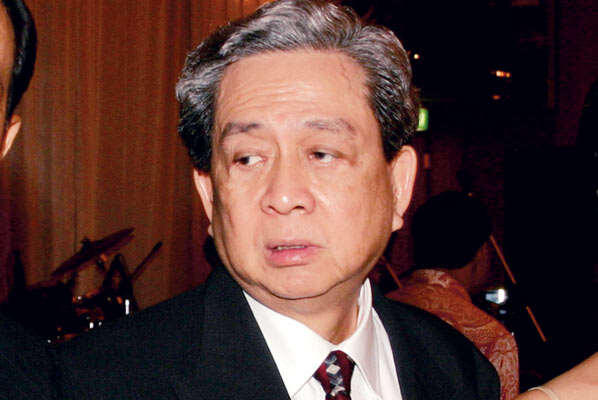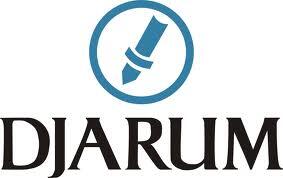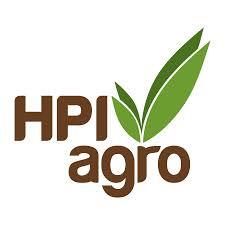Norway’s wealth fund expels
POSCO, Daewoo Int’l over palm oil holdings
by Philip Jacobson on 18 August
2015
A subsidiary of POSCO and Daewoo
International in Indonesia’s Papua province is clearing forest the WWF has
recognized as among the most important in the world.
Genting and IJN were excluded for
the activities of their units in Indonesian Borneo.
Noble Group also faces a
recommendation for expulsion from the sovereign wealth fund..
Norway’s central bank is
divesting the country’s $870 billion pension fund of its holdings in four Asian
multinationals over rainforest destruction for palm oil in Southeast Asia, the
bank announced yesterday.
Two of the companies, steelmaker
POSCO and its subsidiary Daewoo International Corp., are headquartered in South
Korea. The others, Genting Bhd. and IJM Corp. Bhd., are Malaysian
conglomerates.
POSCO and Daewoo International
were excluded for the activities of a subsidiary in Merauke, a district of
Indonesia’s Papua province, where the central government intends to revive a
controversial megaproject, the Merauke Integrated Food and Energy Estate
(MIFEE).
The Korean firms take the bigger
hit: at the end of 2014, Norway’s fund held a 0.91 percent stake in POSCO worth
$198 million and a 0.28 percent stake in Daewoo International worth $9 million,
according the fund’s Council of Ethics’ recommendation to divestfrom the two
companies.
As for the Malaysian companies,
at the end of 2013 the fund held a 0.49 percent stake in IJM worth $12 million
and a 0.52 percent stake in Genting, according to the recommendations to
exclude them. Genting’s market capitalization today is about $6.5 billion.
“The companies are excluded based
on an assessment of the risk of severe environmental damage,” Norges Bank, the
central bank which manages the fund, said in a statement.
“Before deciding to exclude a
company, Norges Bank shall consider whether the use of other measures,
including the exercise of ownership rights, may be better suited. The Executive
Board concludes that it is not appropriate to use other measures in these
cases.”
Daewoo International’s Merauke
subsidiary is Bio Inti Agrindo (BIA). Its concession spans 32,500 hectares near
Indonesia’s border with Papua New Guinea and overlaps with a WWF Global
Ecoregion known for its rich assortment of plants and animals. There are 344
registered bird species and 69 species of mammal, including a variety of
marsupials and birds of paradise, some of which are endangered and only found
in this area. Yet its biodiversity remains poorly documented, with many species
thought to be undiscovered.
A map from the West Papua Oil
Palm Atlas, a report by the Pusaka Foundation, awas MIFEE and six other
organizations, shows oil palm concessions in Merauke. The asterisk next to
Daewoo International’s name atop “PT Papua Agro Lestari” indicates that while
the authors were uncertain of PAL’s ownership, local people said the company
had the same management as Bio Inti Agrindo, which is owned by Daewoo. Image:
West Papua Oil Palm Atlas
At some point after BIA began
clearing in 2012, the council noticed a discrepancy between the company’s
environmental impact assessment, which portrays the concession as covered
mostly in shrubs and bush with the rest consisting of secondary forest, and
official maps and satellite imagery, which show that around half the concession
holds untouched primary forest.
The council repeatedly reached
out to Daewoo International to clarify the matter, but the information provided
by the company “provides few answers,” according to the recommendation.
For example, the environmental
impact assessment “contains little information on the condition of the forest,
ecosystems or species diversity in the concession area,” and “the company has
not carried out assessments to identify high conservation values in the
concession area.”
In the name of safeguarding
protected species, BIA established three buffer zones along its waterways, but
the council said it was “unclear … which species these actions are designed to
protect, and how narrow strips of forest in a large plantation landscape will
help to preserve ecological values in the concession area.”
A close-up of Bio Inti Agrindo’s
concession in Merauke, which is divided into two blocks separated by a wildlife
sanctuary. The yellow line represents Indonesia’s border with Papua New Guinea.
Image: Council of Ethics
The upper image shows Bio Inti
Agrindo’s concession in 2013, at which time it had cleared much of the western
block. The red area in the lower image was cleared in 2014, and the rest of the
western block was cleared too. Image: Council of Ethics
In response to the council’s
inquiries, Daewoo International replied that it planned to conduct a high
conservation value (HCV) assessment, but according to the council the company
specified no timetable for doing so and gave no indication that clearing would
be suspended in the meantime.
“In the Council’s view, this
measure is therefore inadequate to prevent severe environmental damage,” the
statement says. BIA did not respond to an email seeking comment.
The recommendation also points to
“an abnormally large number of fire hotspots” on the concession, enough to
indicate that land is possibly being cleared by burning, which is illegal in
Indonesia. Daewoo denied that burning was used to clear and attributed the
fires to local peoples’ negligence, according to a correspondence cited in the
recommendation. “This cannot be ruled out,” the recommendation says.
“Nevertheless, the Council finds it unlikely that so many fires would occur in
the concession area without any connection to the land clearing. In the
Council’s view, the sheer number of fires and the fact that the burning has
been ongoing for several years should have prompted the company to investigate
the cause of the fires, and to consider whether its measures are adequate to
prevent fires from occurring.”
Red dots show fire hotspots that
registered in BIA’s oil palm concession between January 1, 2011, and August 15,
2014. The company’s owner, Daewoo International, maintains that the fires were
set by local people, but the Norwegian Council of Ethics associated with the
country’s $870 billion pension fund sees the large number of hotspots as an
indication that fire was used intentionally as a land-clearing method, a
violation of Indonesian law. Image: Council of Ethics
Genting was excluded from the
fund for clearing orangutan habitat and peatland in Borneo in violation of the
Norway-Indonesia moratorium on logging certain types of forest. IJM was also
said to be clearing important forest in Borneo.
Both of the Malaysian companies
are members of the Roundtable on Sustainable Palm Oil (RSPO), a voluntary
eco-certification scheme, but neither said they planned to obtain certification
for their Indonesian units before 2018, “an unusually long timescale for
building a more sustainable operation,” according to the council.
Noble Group Ltd., Asia’s largest
commodities trader, was previously excluded from the fund over its oil palm
plantations in the Indonesian provinces of Papua and West Papua.
A previous version of this
article stated that the Council of Ethics has an outstanding recommendation to
exclude Noble Group Ltd. from the pension fund and suggested that the company
had yet to be excluded







